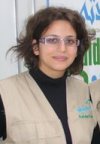
Was the Threat of H1N1 Flu Exaggerated?
By the summer of 2009, shortly after the H1N1 flu pandemic had first emerged, there was a waiting list for the first several million doses of the forthcoming new flu vaccine. At the head of the line, naturally, were the world's richest nations. "Again we see the advantage of affluence," said Margaret Chan, the head of the World Health Organization (WHO), at a news conference on July 14. "Again we see access denied by an inability to pay." Describing H1N1 as "entirely new and highly contagious," Chan scolded rich countries at the time for hoarding the "lion's share" of the global H1N1-vaccine
Six months later, Chan's admonitions seem prescient. Rich countries' hoards have become massive surpluses, and many nations are now trying frantically to cancel pending orders of vaccines or transfer them to poorer nations. France, which had ordered enough of the vaccine to inoculate its entire population of 60 million, has so far used only 5 million doses and now wants to cancel 50 million doses and sell millions more. Similarly, the Netherlands has a 19 million–dose order for sale to other countries, while Germany is in talks with drug manufacturers to halve its order of 50 million doses and sell off millions of others. Switzerland, Spain and Britain are also considering giving away or selling the millions of doses of the vaccine they have received or have on order. The U.S., which has so far distributed 160 million of the 251 million doses it purchased to doctors, hospitals and other health care providers across the country, has yet to make a decision on whether it will have an overflow and what it will do with any surplus.
The excess in many countries occurred partly because health officials initially thought the vaccine would require two doses instead of one, and many countries signed contracts with manufacturers under that assumption; it turned out that a single dose was enough to build immunity. But the main reason for the surplus is simply that demand for the vaccine fell far short of what was originally expected. Now, after governments have spent billions of dollars on vaccines that were not needed — France alone spent $1.25 billion — some politicians and health professionals are looking to hold someone accountable.
"WHO advised us falsely. They raised a false alarm," says Dr. Wolfgang Wodarg, who served in Germany's parliament until September, faulting the U.N.'s global health agency for relying on an inadequate definition of a pandemic.
Wodarg notes that the agency declared the H1N1 pandemic based only on the new virus' transmissibility and did not take into consideration the severity of the strain. Wodarg blames the WHO for raising the alarm over a virus with little destructive potential, leading countries to embark on expensive mass-vaccination programs. He has organized a public parliamentary hearing on behalf of the Strasbourg-based human-rights group Council of Europe, titled "The Handling of the H1N1 Pandemic: More Transparency Needed?" The hearing, scheduled for Jan. 26, will explore the question of whether the WHO and governments overreacted to the threat of H1N1.
Keiji Fukuda, the WHO's special adviser on pandemic influenza, who will head a delegation to the Strasbourg hearing, counters that the WHO's definition of influenza pandemics has always been based on transmissibility and has never had anything to do with the lethality of a virus; it was no different with H1N1. In response to accusations of overreaction to what has amounted to a mild disease, Fukuda says that once the 2009 H1N1 pandemic had been declared, "WHO consistently made it clear that it could not predict the future course of the pandemic but consistently provided sober, balanced and scientifically supported information and guidance."
Fukuda says also that claims that H1N1 is a mild pandemic are wrongheaded. "There have been over 14,000 deaths that have been laboratory-confirmed, many in young, previously healthy people. Who is going to tell their families that the virus is mild?" Fukuda wrote to TIME in an e-mail.
Indeed, it is not difficult to imagine an alternate scenario in which critics would now be accusing the agency of failing to warn countries properly of the H1N1 threat. Hugh Pennington, a microbiologist at the University of Aberdeen who has advised the British government on past public-health crises, says the WHO was obligated to raise the alarm as soon as H1N1's spread matched the medically accepted definition for a pandemic. He points out also that early news reports from Mexico and the U.S., where the virus first emerged, suggested a highly lethal disease.
Still, Pennington says there are lessons to be learned. He says the vaccine surplus in many cases can be ascribed in part to countries' own pre-existing pandemic-preparedness plans. Many such plans, which were put in place in the mid-2000s, were based on the worst-case-scenario assumption that the next pandemic virus would be some variation of the highly lethal H5N1 bird-flu virus, which has so far killed 263 people. The U.K.'s plan, for example, which was automatically enacted when the WHO declared the H1N1 pandemic, predicted between 50,000 and 750,000 deaths from a flu pandemic. So far, there have been 400 British deaths from H1N1.
As part of their plans, many governments lined up multibillion-dollar advance-purchase agreements with pharmaceutical companies to buy vaccines during a pandemic. When the WHO declared H1N1 as such, governments were locked into these contracts, if not legally then politically — amid news reports of a new and potentially lethal virus spreading around the globe, governments could not responsibly pass on the option for vaccine. In this context, governments may have felt the only prudent course was to err on the side of caution.
Pennington says that to avoid similar situations of oversupply in the future, governments may want to plan a range of responses for the next flu pandemic, based on a virus' severity. But such evaluations of deadliness of an emerging disease are much harder to carry out than one would hope — if not impossible. And delaying action in response to an unpredictable new virus could potentially mean an increase in preventable deaths. "I think all countries recognize the desirability of flexibility in implementing pandemic plans. But exercising flexibility is really hard especially when large and complicated events like pandemics are often very confusing, and the expectations of populations can swing dramatically over short periods of time," says Fukuda.
The current glut of vaccines in rich nations may at least prove useful to the 95 countries in the developing world that have no access to vaccines, 86 of which have written to the WHO requesting help obtaining supplies. The WHO already has 200 million doses for such countries, and the first doses of that stockpile arrived in Mongolia and Azerbaijan this month. These doses will be supplemented by bilateral deals: France, for example, plans to sell 2 million vaccine doses at cost to Egypt and 300,000 to Qatar, according to a report in the Parisien newspaper.
It appears that even in developing nations, however, the need for vaccines is not overwhelming. Despite fears that H1N1 would hit developing nations hardest, the pandemic is unfolding in those countries "in a similar pattern" to that in the developed world, says Fukuda — which is to say with relatively few deaths. In fact, some developing countries, particularly in West Africa, are reporting lower rates of infection than in the developed world. "Based on the current H1N1 strain, there are higher health priorities in the developing world," says Sandra Mounier-Jack of the Communicable Diseases Policy Group at the London School of Hygiene and Tropical Medicine, citing illnesses such as HIV, tuberculosis and malaria.
Mounier-Jack's comment echoes the basic question that Wodarg and other critics of the WHO are aiming to pose at Tuesday's hearing: Given that other health problems were more deserving of the billions of dollars spent tackling H1N1, how do the WHO and governments explain their decisions?
The U.S. government, for its part, still wants to vaccinate as many people as possible against H1N1. Although it has indeed been a mild flu season so far, says Jeff Dimond, a spokesperson at the Centers for Disease Control and Prevention, "our message right now is that people should get vaccinated. We are aware that a third wave of infections is possible, so we aren't making any decision yet on whether we will use our full capacity of 251 million doses."
http://www.time.com/time/health/article/0,8599,1956608-2,00.html





 Front Desk
Front Desk
 Patricia Aouad
Patricia Aouad
 Sarita Salameh
Sarita Salameh
